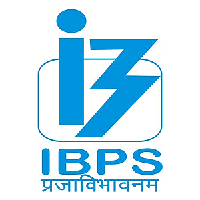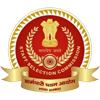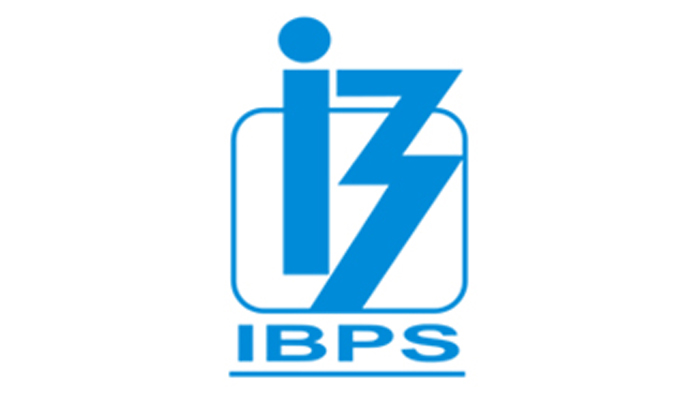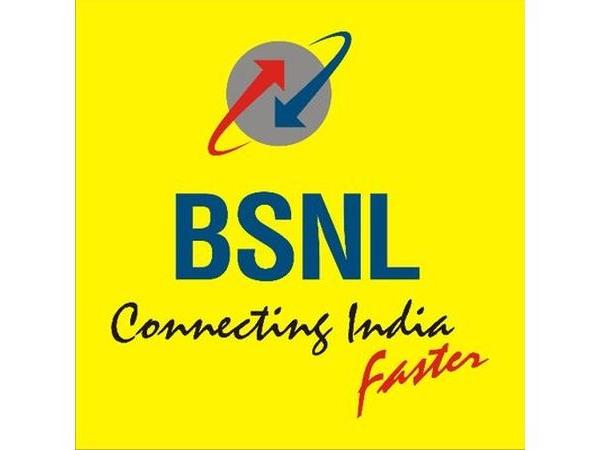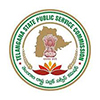
UPSC - IES/ ISS Exam
Based on the latest pattern | Detailed Analysis
Sample Test Paper-1
 100 Questions
100 Questions 100 Marks
100 Marks
The Union Public Service Commission (UPSC) held an annual examination of Indian Economic Service/Indian Statistical Service (IES/ ISS Exam).The IES and ISS is the administrative inter-ministerial civil service under Group A of the Central Civil Services of the executive branch of the Government of India. The exam is conducted to recruit professionals to the various departments/ ministries and in banking and other financial institutions which are associated with the Indian Statistical Services and Indian Economic Services. Log on to the official website to apply online or to check other important details.
UPSC IES/ISS Exam Conducting Body:
UPSC is India's Premiere Recruiting Agency for All India Services and Group 'A' and 'B' officers for Central Services. Union Public Service Commission held exam every year for applicants desiring to join Indian Economic Service/Indian Statistical Service (IES/ ISS Exam).
UPSC IES/ISS Exam Important Dates:
|
Events |
Dates |
|
Registration Date |
07/04/2022 |
|
Application Date |
07/04/2022 to 26/04/2022 |
|
Admit Card Date |
Will be updated soon |
|
Exam Date |
24/06/2022 TO 26/06/2022 |
|
Interview Date |
Will be updated soon. |
|
Result Date |
Will be updated soon. |
|
Mode to apply |
Online |
|
Link to apply |
|
|
Official Notification |
UPSC IES/ISS Exam Selection Procedure:-
UPSC IES/ ISS Exam is held in two different stages:-
-
Written Examination
-
Personality Test/Interview
The selection of the candidates purely depends on merit which is based on the performance in the above-mentioned rounds.
UPSC IES/ISS Exam Pattern:
Written Examination:- The Written Examination consists of six sets of question papers. The pattern of the paper for both the exams are as follows:-
For Indian Economic Service:
|
Subject |
Max marks |
Time allotted |
|
General English |
100 |
3 hours |
|
General Studies |
100 |
3 hours |
|
General Economics-I |
200 |
3 hours |
|
General Economics-II |
200 |
3 hours |
|
General Economics-III |
200 |
3 hours |
|
Indian Economics |
200 |
3 hours |
For Indian Statistical Service:
|
Subject |
Max marks |
Time allotted |
|
General English |
100 |
3 hours |
|
General Studies |
100 |
3 hours |
|
Statistics-I (Objective type) |
200 |
2 hours |
|
Statistics-II (Objective type) |
200 |
2 hours |
|
Statistics-III (Descriptive type) |
200 |
3 hours |
|
Statistics-IV (Descriptive type) |
200 |
3 hours |
Personality Test/ Interview:- The applicants who are shortlisted from the written test are called for the personality test/Interview. The interview is of 200 marks. The final merit list is prepared on the basis of the combined performance of the applicants in Written and the Personal interview stages.
UPSC IES/ISS Exam Eligibility Criteria:
-
Nationality: Must be a citizen of India,
-
Age Limit:- Must be between 21 years and 30 years.
|
Category |
Max. Age limit relaxation |
|
SC/ST |
5 years |
|
OBC |
3 years |
|
Ex-servicemen including Commissioned Officers and ECOs/SSCOs. |
5 years |
|
Blind, deaf-mute and orthopedically handicapped persons |
10 years |
|
Defence Services personnel (disabled in operations during |
3 years |
|
Domicile in J&K from January 1,1980, to December 31,1989 |
5 years |
-
Educational Qualification:-
For Indian Economic Service: Postgraduation Degree in Economics/ Applied Economics/ Business Economics /Econometrics
For Indian Statistical Service: Graduation Degree in Statistics/ Mathematical Statistics/ Applied Statistics.
UPSC IES/ISS Exam Syllabus: The syllabus of the IES/ISS exam is as follows:
General English:
-
Candidates are required to write an Essay
-
Understanding of English
-
Usage of Vocabulary
-
Passages
General Study:
-
Current Affairs
-
General Knowledge
-
Indian Polity & Constitution of India
-
History of India
-
Geography of India & World
General Economics I:
-
Theory of Consumer's Demand
-
Theory of Production
-
Theory of Value
-
Theory of Distribution
-
Welfare Economics
-
Mathematical Methods in Economics
-
Statistical and Econometric Methods
General Economics II:
-
Economic Thought
-
Concept of National Income and Social Accounting
-
Theory of employment, Output, Inflation, Money, and Finance
-
Financial and Capital Market
-
Economic Growth and Development
-
International Economics
-
Balance of Payments
-
Global Institutions
General Economics III:
-
Public Finance
-
Environmental Economics
-
Industrial Economics
-
State, Market, and Planning
- Indian Economics:
-
History of Development and Planning
-
Federal Finance
-
Poverty, Unemployment and Human Development
-
Agriculture and Rural Development Strategies
-
India's experience with Urbanisation and Migration
-
Industry
-
Labour & Foreign Trade
-
Money and Banking
-
Inflation
-
Budgeting and Fiscal Policy
Statistics I:
-
Probability
-
Statistical Methods
-
Numerical Analysis:- contains Finite differences of different orders, Concept of interpolation and extrapolation, Inverse interpolation, Numerical differentiation, Summation of Series, Numerical solutions of differential equations.
-
Computer Application and Data Processing:- contains the Basics of Computer and Basics of Programming.
Statistics II:
-
Linear Models
-
Statistical Inference and Hypothesis Testing
-
Official Statistics:- contains National and International official statistical system, National Statistical Organisation, National Statistical Commission, Index Numbers, Sector Wise Statistics, National Accounts, Population Census, Socio Economic Indicators, Gender Awareness/Statistics, Important Surveys, and Censuses.
Statistics III: The paper is divided into two sections. Section A contains two questions and both are compulsory to attempt. Section B contains six questions out of which any three are to be attempted.
-
Sampling Techniques
-
Econometrics
-
Applied Statistics
Statistics IV: The paper contains seven sections. The candidate has to choose any two sections and answer. Each section carries two questions.
-
Operation Research and Reliability
-
Demography and Vital Statistics
-
Survival Analysis and Critical Trial
-
Quality Control
-
Multivariate Analysis
-
Design and Analysis of Experiment
-
Computing with C & R
.
FAQs:
Ques 1. What is the Indian Statistical officer?
Ans. UPSC ISS Exam is also known as the Indian Statistical Service is a part of the Central Civil Services. Applicants recruited through this exam are Group 'A' Officers concerned directly with the permanent bureaucracy of the Govt. of India.
Ques 2. How many times can a candidate attempt the Indian Economic Services?
Ans. The maximum attempts permissible are:
-
General Category - 4 attempts
-
OBC - 7 attempts
-
SC/ST - No limit.
Ques 3. Can an MBA candidate appear for Indian Economic Service?
Ans. Applicants must possess a Post Graduate Degree in Economics/Applied Economics/Business Economics /Econometrics from any recognized university.
Ques 4. Which category is exempted from payment of examination fee?
Ans. Female candidates, Persons with Benchmark Disabilities (PwBD), and SC/ST categories belonging candidates are exempted from payment of Examination Fee.
Ques 5. Does swapping of photograph and signature or their poor quality affects the candidate's form?
Ans. Poor quality of uploaded photograph and signature or swapping of the same lead to complications in the future. Candidates are advised to read the relevant instructions carefully.
Ques 6. Which format is acceptable for the scanned photograph and signature?
Ans. The images of the photograph and signature should be scanned in the .jpg format. No other format is accepted by the online system.
Ques 7. What should be the size of the scanned signature and photograph?
Ans. The size of the file should not exceed 300 KB each and must not be less than 20 KB in size for the photograph and signature.
Ques 8. What precautions are to be taken by a candidate while filling up the Online Application Form?
Ans. Please read the instructions carefully before filling up the Online Application Form.
Ques 9. Can a candidate fill UPSC form twice?
Ans. Yes. He/she can change optional paper, medium, choice of location. They can fill as many times they wish. But UPSC considers the lastest filled form only and the rest all are considered null and void.
Ques 10. Candidates from which Nations are eligible to apply?
Ans. Following nationality belonging candidates are eligible to apply:
-
Indian Citizen.
-
Candidates of Nepal, Bhutan, or Tibetan Refugees (migrated to India before 1st January 1962)
-
Indian Origin candidates from Sri Lanka, Pakistan, Vietnam, Burma, or East Africa (Kenya, Ethiopia, Tanzania, Uganda, Zambia, Malawi, and Zaire).
Ques 11. How much time is given to the candidates to apply online?
Ans. The time is always mentioned in the Examination Notice. A candidate gets at least 3 weeks' time to apply.
Ques 12. When are the e-Admit Cards issued?
Ans. The eAdmit Cards are issued for eligible candidates around three weeks before the examination. The eAdmit Cards are made available on the UPSC website https://upsconline.nic.in for downloading by the candidates and not sent by post.
Ques 13. which are the centers for examination/
Ans. Following are the centers:
|
Ahmedabad |
Jammu |
Bangaluru |
Bhopal |
|
Kolkata |
Mumbai |
Chandigarh |
Lucknow |
|
Cuttack |
Chennai |
Patna |
Delhi |
|
Prayagraj |
Shillong |
Dispur |
Shimla |
|
Hyderabad |
Thiruvananthapuram |
Jaipur |
Ques 14. Is there any Penalty For Wrong Answers marked by the candidates in Objective Type Question Paper?
Ans. Yes, there is a penalty for wrong answers in the Objective Type Question Paper.
Ques 15. When the e Admit cards are issued?
Ans. 10 days prior to the exam.
Conclusion: UPSC conducts the written examination in Offline mode. It is a Pen and Paper based OMR sheet exam. It is a golden opportunity for the candidates to serve the banking and other financial institutes. It is advised to the candidates to check the official website regularly. We the team of estudentbook wishes you all the best for your future.

